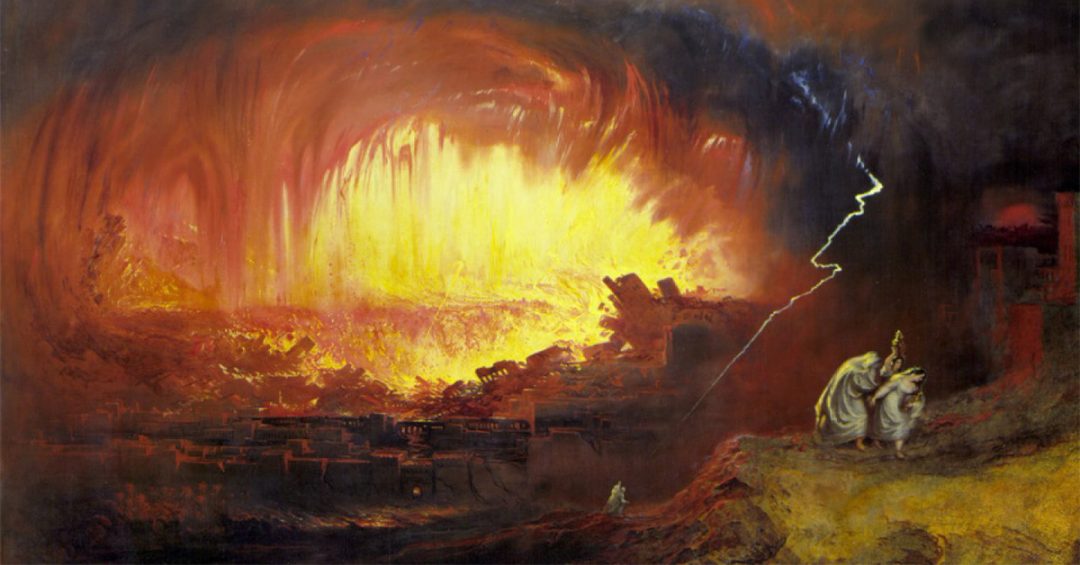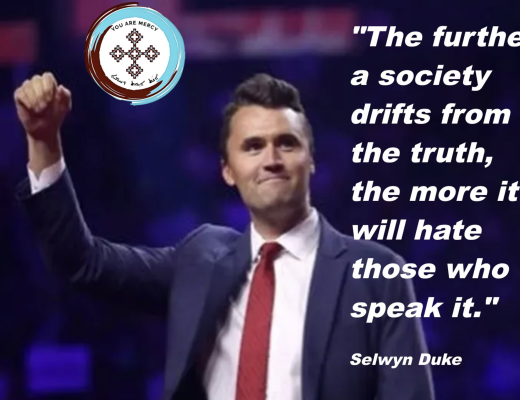Sins that cry out to Heaven for revenge defined in the Latin term “peccata clamantia” (crying sins) recognise in particular four deadly sins, that their specific cases are listed in the Bible.
The Bible refers only to specific actions by the Bible characters as “sins crying out to heaven for vengeance,” which are the most serious violation against the law of Christ.
Not to mention the seven deadly sins that need the Sacrament of Reconciliation, the Catholic Church is so clear in her declaration that there are “no limits to the mercy of God.” (CCC 1864) but apart from the eternal sin, Jesus said in Mark’s Gospel (3.28-29), “ Truly I tell you, people can be forgiven all their sins and every slander they utter, but whoever blasphemes against the Holy Spirit will never be forgiven; they are guilty of an eternal sin.” And that means rejecting the forgiveness of God in all the days of our life. And that is a blasphemy against the Holy Spirit because God offered His salvation to all without any exceptions.
” ……. anyone who deliberately refuses to accept his mercy by repenting, rejects the forgiveness of his sins and the salvation offered by the Holy Spirit. Such hardness of heart can lead to final impenitence (lack of repentance or contrition for sins committed) and eternal loss ( CCC, 1864 ).
The four sins are:
- The “blood of Abel”: and that includes, homicide (CCC, 2280), abortion (CCC, 2270), infanticide, fratricide, patricide, and matricide (CCC 2276, 77, 78, 79) (CCC, 2268).
In Genesis (4:10) The Lord said to Cain: ‘What have you done? Listen! Your brother’s blood cries out to me from the ground…’
The fifth commandment “ Do not kill”, forbids direct and intentional killing as seriously sinful. The murderer and those who cooperate voluntarily in murder commit a sin that cries out to heaven for vengeance. Infanticide, fratricide, parricide, and the murder of a spouse are especially grave crimes by reason of the natural bonds which they break. Concern for eugenics or public health cannot justify any murder, even if commanded by public authority (CCC, 2268).
furthermore, the utmost sins that politics especially nowadays downplay is the human life by legalisations and approval of abortion, which St. John Paul II compared to “the blood of Abel.”
- The “sin of the Sodomites”: Non procreative sexual acts
The Sodomites people were guilty of Homoexualiies.
In Genesis (18:20-21), the Lord said, “The outcry against Sodom and Gomorrah is immense, and their sin is extremely serious.”
And St Jude said in (1:7), ‘In a similar way, Sodom and Gomorrah and the surrounding towns gave themselves up to sexual immorality and perversion. They serve as an example of those who suffer the punishment of eternal fire.’
Likewise the book of Genesis (19:5-13) continues to give us again a glimpse of the Sodomites’ great transgressions and persistence.
- Oppression of the poor, widow and orphans
Are those who cannot help themselves, or those who are subjected to prolonged persecution or those unjustly treated and therefore they cry out to God that He would intervene.
As Exodus (22:21-23) explains, ‘Do not mistreat or oppress a foreigner, for you were foreigners in Egypt. Do not take advantage of the widow or the fatherless. If you do and they cry out to me, I will certainly hear their cry.’
And the Catholic Church verifies that, ‘in its various forms – material deprivation, unjust oppression, physical and psychological illness and death – human misery is the obvious sign of the inherited condition of frailty and need for salvation in which man finds himself as a consequence of original sin. This misery elicited the compassion of Christ the Savior, who willingly took it upon himself and identified himself with the least of his brethren. Hence, those who are oppressed by poverty are the object of a preferential love on the part of the Church which, since her origin and in spite of the failings of many of her members, has not ceased to work for their relief, defense, and liberation through numerous works of charity which remain indispensable always and everywhere.’ Congregation for the Doctrine of the Faith, instruction, Libertatis conscientia, 68. (CCC, 2448).
And in the book of Deuteronomy (15:11) explicitly stated that caring for the poor is indeed a must! ‘For the poor will never cease out of the land; therefore I command you, ‘You shall open wide your hand to your brother, to the needy and to the poor in the land.’
Jesus also makes these words in John (12:8) his own: ‘You will always have the poor among you, but you will not always have me.’ In so doing He does not soften the violence of previous statements against, ‘buying the poor for silver and the needy for a pair of sandals . . .,’ (Amos 8:6); but He invites us to recognise his own presence in the poor who are his brethren: ‘The King will reply, ‘Truly I tell you, whatever you did for one of the least of these brothers and sisters of mine, you did for me.’ (Mt 25:40) ,(CCC 2449).
- Injustice to the wage earner: Exploitation, defrauding workers and stripping them of their rights.
The book of Deuteronomy (24:14-15) warns of this matter; “Do not take advantage of a hired worker who is poor and needy, whether that worker is a fellow Israelite or a foreigner residing in one of your towns. Pay them their wages each day before sunset, because they are poor and are counting on it. Otherwise they may cry to the Lord against you, and you will be guilty of sin.”
Similarly the Apostle James said in his Epistle (5:4-5), “Look! The wages you failed to pay the workers who mowed your fields are crying out against you. The cries of the harvesters have reached the ears of the Lord Almighty. You have lived on earth in luxury and self-indulgence. You have fattened yourselves in the day of slaughter.”
The Catholic Church also underpinned her stance by saying: “A just wage is the legitimate fruit of work. To refuse or withhold it can be a grave injustice (Lev 19:13; Jas 5:4). In determining fair pay both the needs and the contributions of each person must be taken into account. “Remuneration for work should guarantee man the opportunity to provide a dignified livelihood for himself and his family on the material, social, cultural and spiritual level,
taking into account the role and the productivity of each, the state of the business, and the common good.” ( GS 67 § 2.) Agreement between the parties is not sufficient to justify morally the amount to be received in wages.” (CCC, 2434).






No Comments